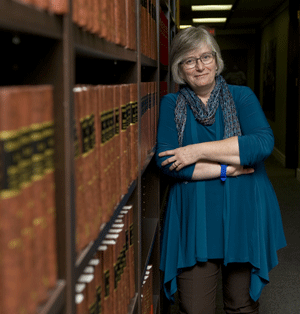
Prime Minister Justin Trudeau has announced a new process for judicial appointments to the Supreme Court of Canada, including a seven-member advisory board that will compile a short list for consideration.
Applications for the spot that will be vacated by retiring Justice Thomas Cromwell can be submitted until Aug. 24.
“The Supreme Court of Canada is respected nationally and internationally for its excellence — it is recognized as a model of a strong, independent judicial institution. This is due in no small part to a tradition of appointing only the most exceptional and impressive individuals to the court,” said Trudeau in a news release that stressed the introduction of “an open, transparent and non-partisan process that will help ensure that the best, most well-qualified people reflective of Canadian society are named to Canada’s top court.”
“For the first time, any qualified Canadian lawyer or judge may apply for appointment to the Supreme Court of Canada through the Office of the Commissioner for Federal Judicial Affairs,” said the news release.
Candidates for the job are expected to be “jurists of the highest caliber, functionally bilingual, and representative of the diversity of our great country.”
The board will review candidates who submit their names for consideration, then whittle it down to a short list of three to five people for the prime minister to weigh.
Other big changes mean that once-private information related to the process will be now be shared with the public, including the assessment criteria the board will use to select its top picks, the questionnaire all applicants must send in and the answers provided by the prime minister’s chosen nominee.
“The Minister of Justice and the chair of the Advisory Board will appear before Parliament to discuss the selection process. A number of Members of Parliament and Senators — from all parties — will also have the opportunity to take part in a Q&A session with the eventual nominee, before she or he is appointed to the Supreme Court of Canada,” said the release.
Emmett Macfarlane, an assistant professor of political science at the University of Waterloo who specializes in the Supreme Court of Canada, says he likes the changes, such as making the nominee’s questionnaire public.
“For the most part, I think they’re a very positive step towards enhancing the transparency of the process,” says Macfarlane, who said an issue “with the old process and its very opaque nature” were gaps in the process when it came to “Canadians being able to get a bit of an understanding of the judges and how the court actually works.
“It’s important for there to be — not a formal vetting process, that might be too harsh a word — but elements of the process that actually give us a sense of who these people are before they’re formally appointed. And what this new process allows, in a couple of ways, is various modes of screening,” he adds.
The seven members of the advisory board include two lawyers chosen by the Canadian Bar Association and the Federation of Law Societies of Canada, a retired judge selected by the Canadian Judicial Council and a legal scholar put forth by the Council of Canadian Law Deans. It also includes another three people chosen by federal Minister of Justice Jody Wilson-Raybould, including two people who are non-lawyers.
Former prime minister Kim Campbell will lead the board. She is currently the founding principal of the Peter Lougheed Leadership College at the University of Alberta. Susan Ursel, who is a partner with Ursel Phillips Fellows Hopkinson LLP, is the sole member from Ontario.
Ursel is also chairwoman of the Canadian component of the African Legal Research Team.
The board also: includes Camille Cameron, dean of the Schulich School of Law at Dalhousie University in Halifax; Jeff Hirsch, president of the Federation of Law Societies of Canada and a partner with Winnipeg law firm Thompson Dorfman Sweatman LLP; Richard Scott, former chief justice of the Manitoba Court of Appeal and current counsel, arbitrator and mediator with Hill Sokalski Walsh Trippier LLP in Winnipeg; Lili-Anna Pereša, a trained engineer who is president and executive director of Centraide of Greater Montreal; and Stephan Kakfwi, a former premier of the Northwest Territories and president of the Dene Nation.
Ursel told Legal Feeds by e-mail that she is “delighted and honoured to be a member of the advisory board.
“I am looking forward to working with my colleagues to recommend a short list of qualified functionally bilingual candidates for consideration by the prime minister for an appointment to the Supreme Court of Canada,” said Ursel.
“I am particularly pleased to be able to assist in a process which I believe will make an important contribution to the justice system in Canada.”
Eugene Meehan, a lawyer at Supreme Advocacy LLP and former executive legal officer at the Supreme Court, told Legal Feeds by e-mail that “given how long the process for selecting Supreme Court justices has been a concern, having a clear process set down in writing is a welcome change for the legal community and public alike.
“I don’t see it as a drastic change but instead a lifting of the veil on the process which has been used — in various iterations — to consistently ensure our top court has a strong bench,” he added. Meehan also said, “The bilingual requirement is welcome, but we may see some challenges as the eligibility requirements are constitutionally protected.”